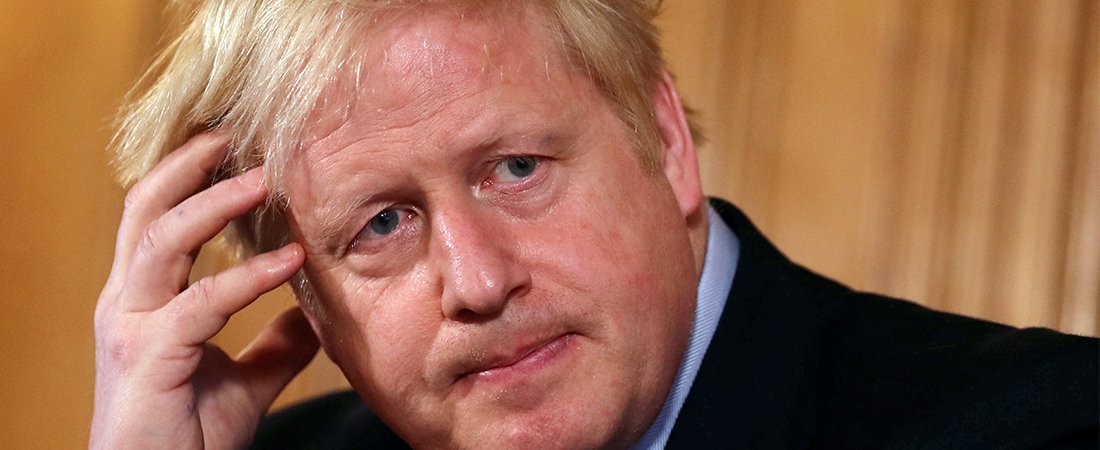Just a few weeks ago, it would have been inconceivable that the UK-EU trade talks would do anything but dominate the headlines. Boris Johnson’s team were doing their best to insist that they had “got Brexit done”, even trying to ban the use of the ‘B’ word, but it was cutting little ice.
The explosion of Covid-19 has made the central objective of the new British government seem almost trivial. It has also had the practical effect of stopping face-to-face negotiations after their first leg in Brussels, before a return round in London could even take place. Political energy on both sides of the channel is now consumed by the virus and will be for months to come.
The obvious question is whether, in these new and extraordinary times, the two sides will agree that it is neither sensible nor feasible to conclude a deal this year and extend the transition agreement until the crisis has passed.
The case for doing so is not hard to make, surely: the full attention of everybody in government should be focussed solely on dealing with the devastating dangers of coronavirus, without unnecessary distraction. It cannot make sense to pile self-imposed disruption and costs onto business and people who are already struggling. And the December 2020 deadline is entirely arbitrary and self-imposed.
The difficulty is on the UK side, and it is entirely political. Boris Johnson has just won an election on a promise not to extend transition under any circumstances. Hardline Vote Leave ministers Michael Gove and Foreign Secretary Dominic Raab have so far stuck to the script when questioned by MPs, insisting that there can be no question of a U-turn. Downing Street spokespeople remind journalists that it would be illegal under UK law, the House of Commons having finally passed the Withdrawal Bill.
As Britain plunges deeper into hardship, economic woes mount and the appalling human cost of Covid-19 becomes evident, few would bet against a change of heart before the June deadline by which any extension is supposed to be agreed. If ever there were an alibi for dropping your main manifesto promise, this is it.
71 per cent of the British public agree that the Government should delay the Brexit talks as a result of the outbreak
Could it be that the Government are still waiting for that moment when they can request an extension with complete political cover provided by the response to the pandemic? Our in-house Portland Polling suggests that the time could be fast arriving, 71 per cent of the British public agree that the Government should delay the Brexit talks as a result of the outbreak. Certainly, within the EU, the trade negotiations are long gone from the front pages as attention turns to the North-South divisions on EU economic response to the virus, flexibility around EU state aid rules, privacy concerns on using mobile data to track infection and the influence of China in the exportation of medical supplies to the EU, to name but a few more pressing concerns.
Ostensibly, the negotiations can in theory proceed by correspondence and video conference. However, EU officials have complained that they find the technology, though the only viable option, a poor substitute for the kind of live, bilateral chats they might otherwise have in person and, importantly, away from sight. Further compounding the logistical challenges, both negotiators have been impacted by the virus with one contracting and the other having to self-isolate. Though Michael Gove co-chaired the joint committee on the EU-UK Withdrawal Agreement, the reality is the negotiations have been undermined as attention, rightly, focuses on pandemic response.
All remaining focus is now trained upon Westminster, something compounded by the decision of the European People’s Party to add its voice to those calling for an extension to the transition. The European Parliament’s largest grouping said, “an extension of the transition period is the only reasonable thing to do.” The UK has until June to agree an extension of up to two years, yet the Government is holding firm on its official line that the transition period is defined in law, something Johnson “has no intention of changing.”
For now, the UK Government continue to hold the line that there will be no extension to the transition period. However, a couple of months ago, no one predicted we would be in this current situation with unprecedented challenges facing society and businesses. The public are already willing to accept an extension, and as we continue to deal with the economic impact of this pandemic, businesses may increase their calls for greater clarity on their trading relationship with the EU beyond the end of December 2020. If the Government chooses to extend the transition period, the key will be when and how they can introduce this idea in light of rapidly changing circumstances for the economy and society. An extension predicated explicitly on the time lost dealing with Covid-19 and saving the lives of the British public, their family members, is something that most could accept.
Steve Morris is the International Chair of Portland. He is a communications expert with over 20 years experience, he was previously a leading communications specialist for the UK Government and a Spokesman for the European Commission in Brussels.

